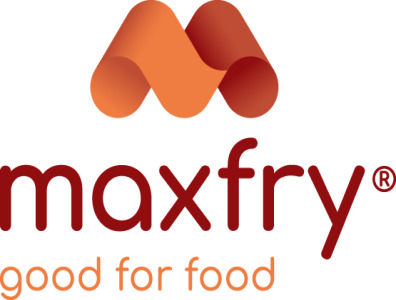News
Acrylamide reduction in the spotlight
14 Aug 2018New EU regulation on acrylamide levels in food came into force in April 2018, spurring companies to step up their reduction efforts. What are the latest solutions?

Acrylamide is a probable carcinogen that forms during high temperature cooking and processing, such as baking, frying and roasting, particularly in starchy foods like crisps, French fries, cereals and baked goods. It occurs when sugars react with the amino acid asparagine, giving foods their browned colour and flavour. Its formation can’t be avoided, but it can be reduced, meaning that acrylamide levels have been monitored and debated for years.
The latest EU regulation sets benchmark levels for acrylamide by food category, ranging from 40μg per kg in baby foods to 4,000μg per kg in chicory used as a coffee substitute. The benchmarks are set to be reviewed by the European Commission every three years, with the goal of gradually setting lower levels.
For food companies, acrylamide is not a new challenge, but despite widespread availability of cost-effective approaches to reduce its presence, many had failed to take action. After several years of monitoring acrylamide levels in foods, the European Food Safety Authority found no considerable change, with levels in some food categories actually rising over time.
EU regulation on acrylamide is therefore expected to motivate companies to take a fresh look at the issue, especially as they will be expected to keep their products within gradually lower limits.
Since the EU regulation came into force, ingredients companies have continued to innovate in this space in anticipation of upcoming demand. DSM has extended its range of asparaginase enzyme solutions for use in high pH applications, such as biscuits, crackers, tortillas and corn chips. It says other asparaginase solutions are often less effective in more alkaline products, creating a challenge for manufacturers. The company claims its latest enzymatic solution can reduce acrylamide by up to 95%.
Meanwhile, Frutarom has released customised blends of rosemary oil and water soluble extracts for use in frying oil. The company says they can reduce acrylamide in fried potatoes by up to 90%, and in other snacks by up to 60%.
However, there is a wide range of solutions already available to manufacturers. Novozymes was one of the first movers in the sector back in 2007, when it released an asparaginase enzyme that can reduce acrylamide by up to 90% in finished products. Other companies active in acrylamide reduction include Orkla Food Ingredients with its acrylamide-reducing yeast, and Maxfry with its ingredients to improve heat transfer from frying oils.
Beyond added ingredients and enzymes, companies can also consider switching out sugars high in fructose, reducing processing time and temperature, and even changes in the selection of raw materials.
Whichever approach manufacturers choose, there is now a clear expectation to keep a much closer eye on acrylamide. By doing so, companies protect themselves from sanctions – and protect their customers from potential harm.
Related news

Retail landscape lacks nutritious and affordable food, says ATNi
30 Dec 2025
A rapid increase in modern food retail has given retailers growing influence over consumer diets, according to global non-profit ATNi’s latest assessment.
Read more
Debate over ban on ‘meaty’ names for plant-based products reaches stalemate
26 Dec 2025
The debate over a ban on plant-based products using “meaty” terms has reached a stalemate, leaving manufacturers in limbo and still facing overhauls to their marketing and packaging.
Read more
Multi-sensory food and drink products to gain traction in 2026
16 Dec 2025
Trend forecasters predict that sensory elements will play a larger role, helping food and beverage brands differentiate themselves in a competitive market in 2026.
Read more
Big appetite for M&A between European and US food and drink companies
3 Dec 2025
Persistent tariffs on EU food and beverage exports have helped drive record levels of M&A activity between European and US companies this year, according to analysis by ING.
Read more
Non-UPF Program extends certification scheme to entire food industry
30 Nov 2025
The Non-UPF Program has extended its certification scheme to the wider food sector, championing a move towards healthier consumption habits.
Read more
Lancet study links UPFs to chronic disease risk
26 Nov 2025
UPFs are consistently associated with an increased risk of diet-related chronic diseases, according to a comprehensive review of global evidence in The Lancet .
Read more
Concerns swirl around cinnamon’s compliance with EU law
25 Nov 2025
Cinnamon may be a top functional ingredient, but it needs stronger protocols to ensure it meets EU food safety laws and quality standards, say researchers.
Read more
Oat Barista: Innovation for game-changing beverages
20 Nov 2025
Oat Barista is a clean label, sustainable, and innovative drink base specifically designed to create the perfect foam in one single ingredient.
Read more
How younger consumers are redefining ingredient choices and rejecting brand loyalty
18 Nov 2025
Gen Z and millennial consumers’ preferences for transparency, functionality, and purpose are “redefining the very nature of consumption itself”, says SPINS.
Read more
Hybrid formats and flexible positioning to disrupt category norms in 2026
17 Nov 2025
Trend forecasters expect food and drink to move more fluidly across occasions, functions, and formats as consumers seek versatility, novelty, and convenience.
Read more


